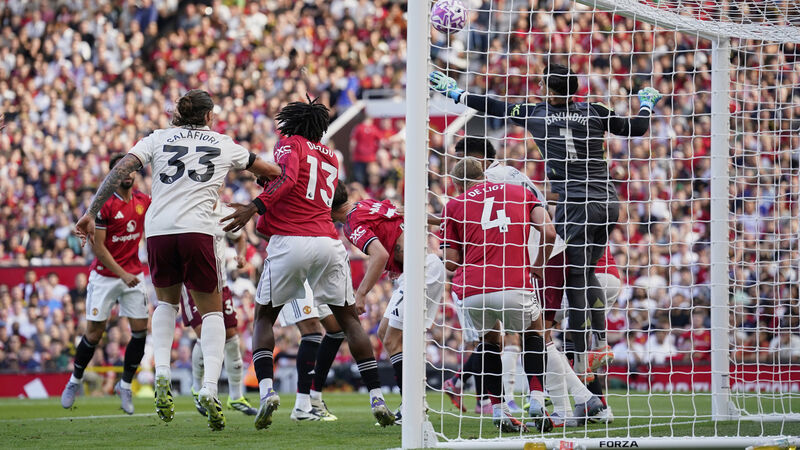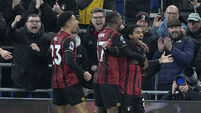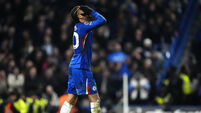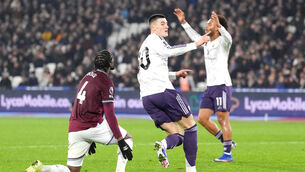New season, same strife between the sticks for Manchester United

Manchester United's goalkeeper Altay Bayindir, right, tries to reach the ball before Arsenal's Riccardo Calafiori, left, scored his sides goal. Pic: AP Photo/Dave Thompson
New seasons are never new starts, not entirely. The sun may have been shining and the temperature in the mid‑20s. There may have been new kits on the pitch and new flags in the stands. There may, among home fans, perhaps especially those refreshed in the new marquee behind the Stretford End, have been a giddy expectation that this season couldn’t be as bad as last for Manchester United. But the roots of a game run deep, stretching back into the mulch of the past. This was a game shaped by events last December.
Arsenal are good at set pieces; United are vulnerable to inswinging deliveries. In December last year Arsenal beat United 2-0 at the Emirates Stadium, both goals the result of corners. United had André Onana in goal for that one, but Tottenham had taken notice of the susceptibility to balls arced into the goalmouth, the way United struggled to protect their keeper.











